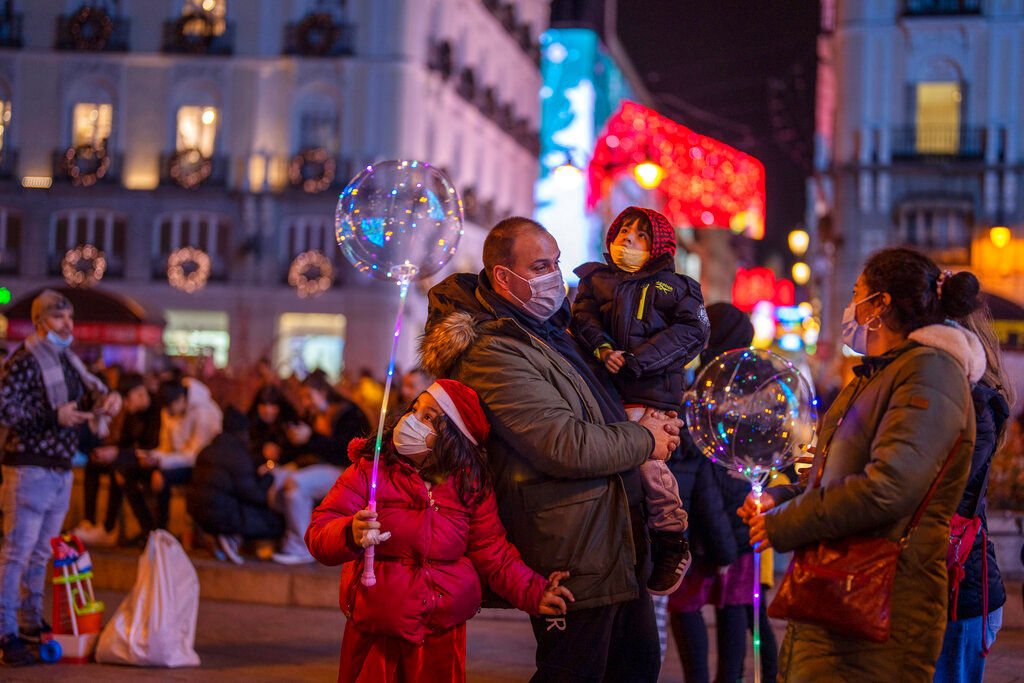Dave Fravel and his wife invited several relatives to their Cape Cod home for Christmas to share food, gifts and the togetherness they’ve longed for during the lonely days of the pandemic. They were also looking forward to a holiday sightseeing trip to New York City.
But the coronavirus spoiled all those plans. With cases surging in their state of Massachusetts and the super-infectious omicron variant racing around the world, they feared spreading the virus even before Fravel’s 18-year-old son, Colin, came down with COVID-19.
Also read: Australia’s New South Wales revives mask mandate amid new COVID wave
Rich England has been there before. In the summer, when the delta variant was surging, he said no to a Christmastime vacation with his parents and sister’s family to London and Scotland. But he, his wife and 2-year-old daughter are keeping plans for a four-day trip from their home in Alexandria, Virginia, to Miami on Dec. 31.
“The safest thing to do would be to say ‘OMG, we have to cancel,’” he said. “But there’s a lot of letters in the Greek alphabet — there’s going to be variants after omicron. You can’t just respond to every single variant by shutting down.”
Also read: Omicron fears: World’s biggest cities plan for New Year 2022
For the second year in a row, the ever-morphing virus presents would-be revelers with a difficult choice: cancel holiday gatherings and trips or figure out ways to forge ahead as safely as possible. Many health experts are begging people not to let down their guard.
World Health Organization Director-General Tedros Adhanom Ghebreyesus put it starkly this week when he said that “an event canceled is better than a life canceled.”
Also read: Omicron causes milder symptoms, risk of hospitalisation lower: UK studies
But pandemic fatigue is real. And while travel restrictions in some places have forced cancellations, many governments have been reluctant to order more lockdowns, leaving decisions about who to see and where to go increasingly in the hands of individuals.
Complicating matters is the mystery that surrounds omicron. Scientists now know it spreads fast — perhaps up to three times faster than the delta variant. It also seems to be better at avoiding vaccines, although boosters rev up protection, particularly against hospitalization and death. But a crucial question remains: Does omicron cause less severe illness than delta? Some research suggests that it does, but the studies are preliminary.
Also read: California sets February 1 deadline for health worker COVID boosters
Even if it is milder, omicron could still overwhelm hospitals because of the sheer number of infections. That makes it difficult to know how far to turn down the dial on the festive season.
In the United States, infections average around 149,000 a day, and officials announced this week that omicron dethroned delta as the dominant variant. In Britain, where an omicron-fueled surge is seen as a harbinger for many other European countries, daily cases topped 100,000 for the first time on Tuesday. France, Spain and Italy are also seeing infection spikes.
Also read: Dr Anthony Fauci urges people to avoid large gatherings ahead of holiday season
Fravel and his wife, Sue Malomo, who are both software developers and have six children between them, are worried about omicron and delta. Fravel, 51, said they nixed their trip to New York City because “the thought of being in those big crowds didn’t seem to make a whole lot of sense.”
Neither did having lots of people at their house. Typically, 20 to 25 people filter through between Christmas Eve and Christmas Day. But this year, only the kids will come and not all at the same time.







